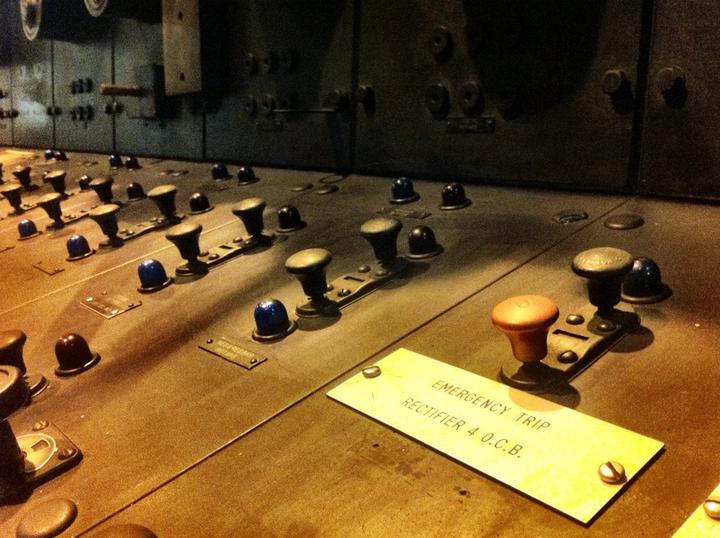Beitzah 17a
1- Our Gemara talks about one who forgot to make an Eiruv Tavshilin.

One of the ways that would allow him to cook on Yom Tov for Shabbos would be to make the Eruv on Thursday (Yom Tov) with a condition (Tenai) by saying, “If today is not really Yom Tov and tomorrow is, then I am making the Eruv today, and if today is Yom Tov and tomorrow is not, then I do not need an Eruv to cook tomorrow for Shabbos.”
We spoke as to why on he would need to make a condition? Why not just make an Eiruv Tavshilin on Thursday. If Thursday is a Yom Tov then no Eiruv needs to be made to begin with since Friday will be a weekday!
And if Thursday is a weekday then he is making a basic Eruv.

2- We discussed the famous ruling of the Rambam on this Halachah. He adds that nowadays – when the two days of Yom Tov are observed not because of a doubt but because of the enactment of “Minhag Avoseinu” — “one may not make an Eruv with a Tenai… but rather it must be done only on Erev Yom Tov.”
The Rav’vad says that while the Rambam’s ruling has logical basis, there is no source for such a ruling in the Gemara or among the earlier Poskim. He therefore rules that one is indeed permitted to make an Eruv with a Tenai on the first day of Yom Tov nowadays as well, and that is the accepted Halacha.

What is the logic of the Rambam’s ruling? Why should one not be allowed to make an Eruv with a Tenai today?
In the times when Beis Din established the new month based on the testimony of witnesses, the Jews in Chutz la’Aretz observed a second day of Yom Tov due to the doubt about when Beis Din declared the new month.

Today, the Jews in Chutz l ‘Aretz observe a second day of Yom Tov not out of doubt, but because of “Minhag Avoseinu.” If our forebears were permitted to make an Eruv Tavshilin with a Tenai on the first day of Yom Tov, then certainly we, who observe the second day of Yom Tov only because they did, should be permitted to make an Eruv Tavshilin with a Tenai on the first day of Yom Tov. After all, the “Minhag Avoseinu” includes the Minhag to permit making an Eruv with a Tenai on Yom Tov. So why do we observe the second day of Yom Tov in a more stringent manner than our forebears?
Second, the Rambam himself rules that an egg laid on the first day of Yom Tov is permitted on the second day of Yom Tov, as the Gemara earlier (4b) teaches. From the fact that the Rambam does not differentiate between nowadays and earlier times it is evident that he maintains that the second day of Yom Tov is not more stringent nowadays than in days of yore. The fact that the egg is permitted on the second day of Yom Tov nowadays shows that the two days of Yom Tov are not one long Kedushah, but rather two separate Kedushos, just as they were when the second day of Yom Tov was observed due to a doubt. Since they are two separate Kedushos, one should be able to make an Eruv with a Tenai on the first day of Yom Tov?
We mentioned briefly the subtle idea of Reb Chaim of Brisk on this issue.
3- We spoke about the concept of ‘Marbe B’Shiurim’. This a rather complicated and interesting topic of which we just scratched the surface.
Here is a primer.
The Gemara in Menochos (64a) has a query- if one needs to pick 2 figs for a very sick person and has two options:
- Cut two branches that each have one fig.
- Cut one branch that has three figs.
[Obviously, if the options would be to pick one branch with two figs or one branch with three figs…surely the rule would be to pick the one with two]

Logic would say that picking two individual branches with one each is worse than picking one with three. After all the act of a ‘melacha’ is double when picking two individual ones as to when picking one with a greater quantity of figs.
From the query it is obvious that the Gemara equates these two acts. Thus, ‘Marbe B’Shiurim’ – adding quantity to a ‘Melacha’ is equal to the prohibition of performing a ‘Melacha’ itself.
The Gemara concludes that one should cut the branch with he three figs.
4- We spoke about a scenario of ‘Marbe B’Shiurim’: An electrical main breaker that trips on Shabbos and darkens an entire hospital. The presence of the sick people allow and therefore obligates us to reset the breaker.

However, by doing that one will automatically put on the lights in the entire hospital, including, for example the garage, where there is no Pikuach Nefesh.
Is one obligated (assuming the time it causes no harm to the patients in need) to go and shut of all the switches that are not important, leaving on only the switches for the rooms where the sick are located ?
Related to this questions is whether or not ‘Marbe B’Shiurim’ is in issur D’oraisa or not, and we mentioned the Ran who holds that it is in fact D’oraisa.